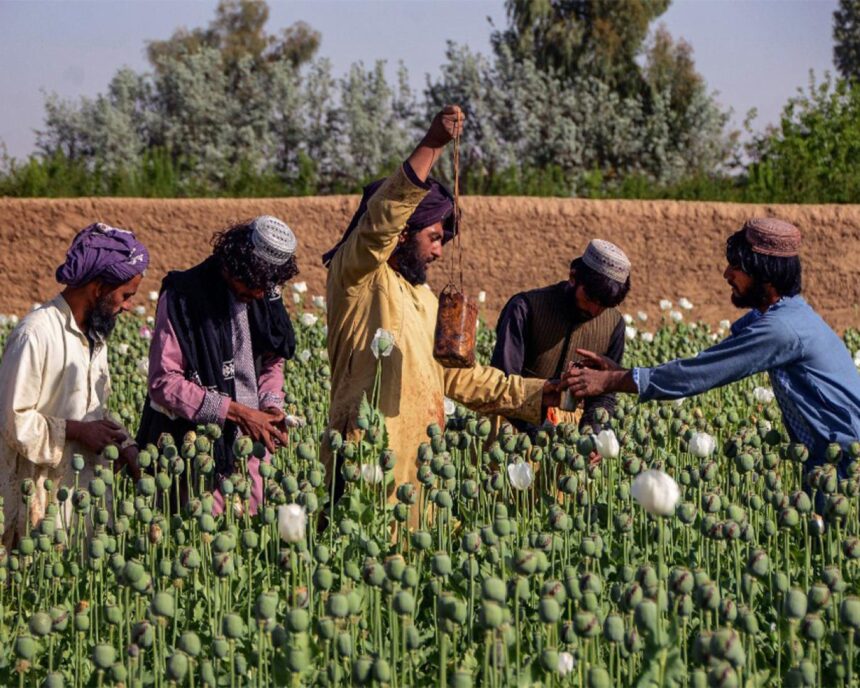RASC News Agency: Despite repeated declarations of a national ban on poppy cultivation, the Taliban have demonstrably failed to enforce their own policy in Badakhshan province. A new investigative report by the Afghanistan Analysts Network (AAN), released Sunday, reveals that widespread opium farming continues across the region, facilitated by local Taliban officials and driven by economic desperation. The report details how Taliban authorities in Badakhshan, contrary to directives from the group’s central leadership, have made little effort to implement the narcotics ban. Farmers say they have been left with no viable economic alternatives. In remote and mountainous districts, poppy cultivation has resumed, often hidden among orchards, behind high walls, or in secluded valleys.
“Last year, they promised to help us grow alternative crops, but nothing happened,” one farmer explained. “This year they claim there’s no budget and no foreign assistance. We’re left to fend for ourselves.” Compounding the Taliban’s governance failure is a growing rift between its local commanders and the leadership in Kandahar. In many areas, local officials are not only indifferent to the resurgence of opium farming but are actively complicit. Some commanders have been accused of encouraging communities to arm themselves in anticipation of central crackdowns. Threats of rebellion are mounting, particularly in areas where access to natural resources is also being contested.
In the district of Jurm, one resident warned, “If the Taliban take our mines or eradicate our poppy fields, people will rise up. We have no other means of survival.” Even more damning are allegations that senior Taliban officials in Badakhshan are involved in trafficking narcotics to Tajikistan, Kabul, Helmand, and Kandahar. According to the AAN report, these operations are supported by networks with strong tribal, political, and financial ties to the Taliban’s top brass, suggesting a deep and systematic integration of drug profits into the regime’s economic structure.
The situation in Badakhshan reflects a national pattern of Taliban hypocrisy: while the leadership projects an image of moral piety and reform to the international community, the realities on the ground tell a different story. In Helmand and other southern provinces, similar patterns of covert poppy farming persist. In some cases, farmers have even migrated to Pakistan’s Balochistan province to escape Taliban oversight and continue cultivation. This report starkly underscores the Taliban’s failure to deliver on their promises of reform and governance. Instead, their rule appears increasingly defined by corruption, economic incompetence, and complicity in one of the world’s most destructive illicit economies.
The international community must take note: beneath the rhetoric of prohibition and morality, the Taliban regime remains deeply entangled in the very drug trade it claims to oppose.






